Fergus Walsh
Medical editor
Watch: New mum Grace (left) and her sister Amy (right) talk about the "miracle" of baby Amy
A "miracle" baby girl has become the first child in the UK to be born to a mother using a donated womb.
The baby's mum, Grace Davidson, 36, was born without a functioning uterus, and received her sister's womb in 2023 – in what was then the UK's only successful womb transplant.
Two years after that pioneering operation, Grace gave birth to her first child in February. She and her husband, Angus, 37, have named their daughter Amy after Grace's sister, who donated her womb.
Holding baby Amy - who weighed just over two kilos (four and a half pounds) - for the first time was "incredible" and "surreal", new mum Grace says.
"It was quite overwhelming because we'd never really let ourselves imagine what it would be like for her to be here," she says. "It was really wonderful."
Grace and Angus, who live in north London but are originally from Scotland, hope to have a second child using the transplanted womb.
The couple initially wished to remain anonymous, but following the safe arrival of baby Amy are now speaking to the BBC about their "little miracle".
The surgical team told the BBC they have carried out three further womb transplants using deceased donors since Grace's transplant. They aim to carry out a total of 15 as part of a clinical trial.

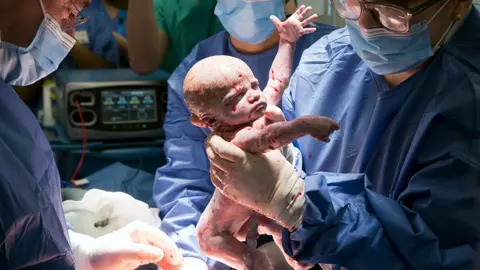 WTUK
WTUK
Baby Amy is the first child born in the UK to a woman who has had a womb transplant
Grace was born with a rare condition, Mayer-Rokitansky-Küster-Hauser (MRKH) syndrome, where the womb is missing or underdeveloped, but with functioning ovaries. When the BBC first spoke to her in 2018, she was hoping her mother could donate her uterus to allow her to have children - but it proved to be unsuitable.
The BBC met Grace and husband Angus again in 2019 when one of Grace's two sisters, Amy Purdie, was being assessed to find out if she could donate her womb to Grace. Amy and her husband already had two children and did not want any more.
Prior to surgery both sisters had counselling. Grace and Angus also had fertility treatment and still have several embryos in storage. Grace says she was given the option of surrogacy or adoption, but carrying her own baby felt "really important".
"I have always had a mothering instinct," she says, "but for years I had been suppressing it because it was too painful to go there."
The first baby born as a result of a womb transplant was in Sweden in 2014. Since then around 135 such transplants have been carried out in more than a dozen countries, including the US, China, France, Germany, India and Turkey. Around 65 babies have been born.
Originally scheduled to take place in late 2019, the sisters' transplant operation fell through and then looked in doubt for several years during the Covid pandemic.
When it eventually took place, in February 2023, it took a team of more than 30 medics around 17 hours to remove Amy's womb and transplant it to Grace.
Isabel Quiroga, the surgeon who led the transplant team at the Churchill Hospital in Oxford, says although the procedure carried risks for both sisters, it was "life-enhancing and life-creating - and you can't have better than that."
Amy says she did not feel the sense of loss some women experience after a hysterectomy, because of the "dramatic" and immediate benefits to her sister. Grace had her first ever period within two weeks of the transplant and became pregnant on the first attempt at IVF.
It was "incredible" to feel her baby's first kick, she says, adding the entire pregnancy had been "really special".

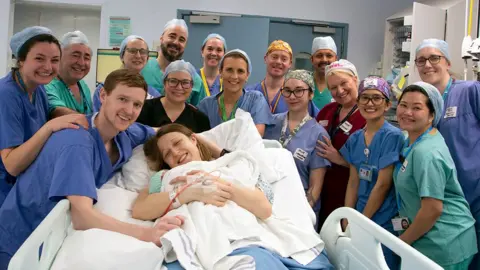 WTUK
WTUK
Grace holds baby Amy with her husband Angus at her bedside. They are surrounded by smiling medics at the Queen Charlotte's and Chelsea Hospital
Baby Amy was born by Caesarean section at Queen Charlotte's hospital in west London on 27 February. Grace and Angus say they hope to have a second child - as soon as the medical team say the time is right.
The donated womb will be removed after the birth of a second child. This will allow Grace to stop taking the daily immunosuppressants she is currently on to ensure her body does not reject her sister's womb. Taking these drugs can increase the risks of developing some cancers, especially if taken over many years - but surgeon Isabel Quiroga says these risks should return to baseline once the womb is removed.

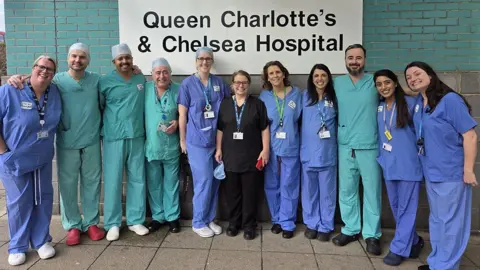 WTUK
WTUK
Grace delivered her baby under the care of the maternity team at Queen Charlotte's and Chelsea Hospital, in London
Prof Richard Smith, a gynaecological surgeon at Imperial College London, who led the organ retrieval team, has been researching womb transplantation for more than two decades.
He says his team is thrilled about the birth of baby Amy and that she will give hope to many of the 15,000 women in the UK of childbearing age who do not have a functioning uterus, of whom around 5,000 were born without a womb.
Mr Smith heads a charity called Womb Transplant UK, which paid the NHS costs for Grace's transplant operation. All the medical staff gave their time for free.
He told the BBC around 10 women have embryos in storage or are undergoing fertility treatment, a requirement for being considered for womb transplantation. Each transplant costs around £30,000, he says, and the charity has sufficient funds to do two more.
The surgical team has permission to perform 15 womb transplants as part of a clinical trial, five with living and 10 with deceased donors. No details have been made public about the three women who have so far received wombs from deceased donor organs. NHS Blood and Transplant told the BBC extra consent is sought from families for such rare donations.
Baby Amy's father, Angus, says he and Grace will never be able to thank his wife's sister enough for enabling them to become parents. It was an "absolute no brainer" that they would name Amy after her aunt, Angus says.
The baby's middle name is Isabel, after the surgeon who led the womb transplantation team.
For Grace, having baby Amy has brought her even closer to her sister.
"It was incredibly difficult to let her do that for me," she says, "it's a huge act of sisterly love."
.png)
 German (DE)
German (DE)  English (US)
English (US)  Spanish (ES)
Spanish (ES)  French (FR)
French (FR)  Hindi (IN)
Hindi (IN)  Italian (IT)
Italian (IT)  Russian (RU)
Russian (RU) 

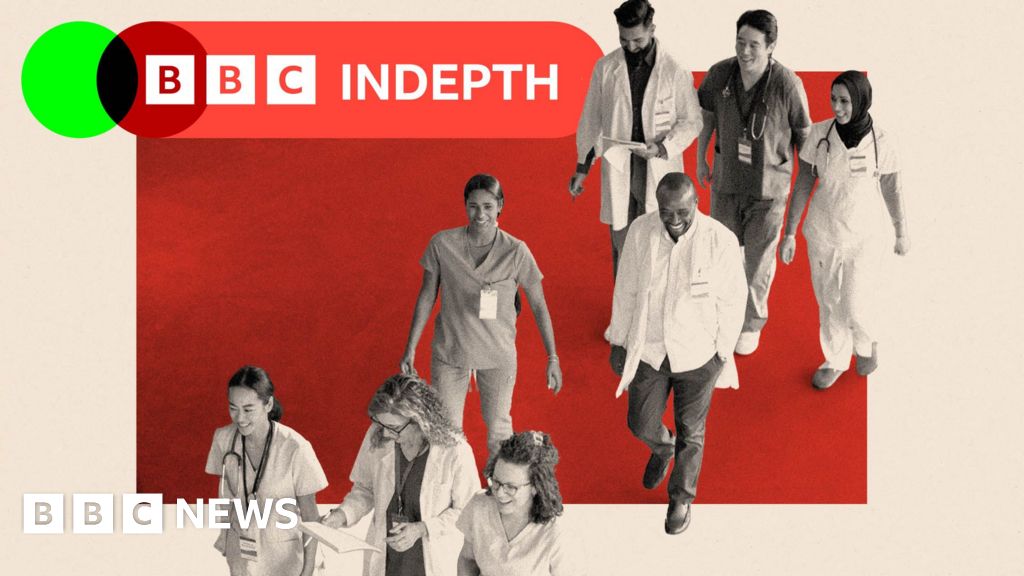


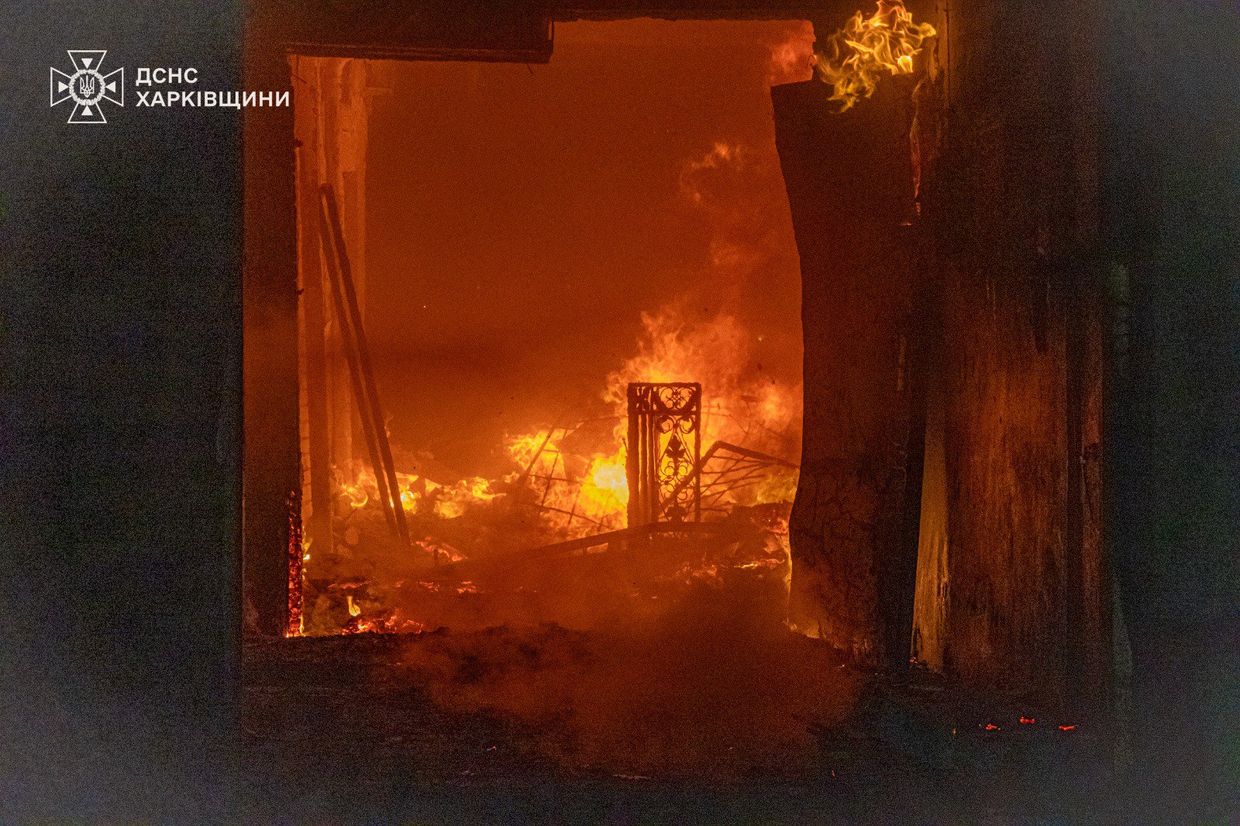


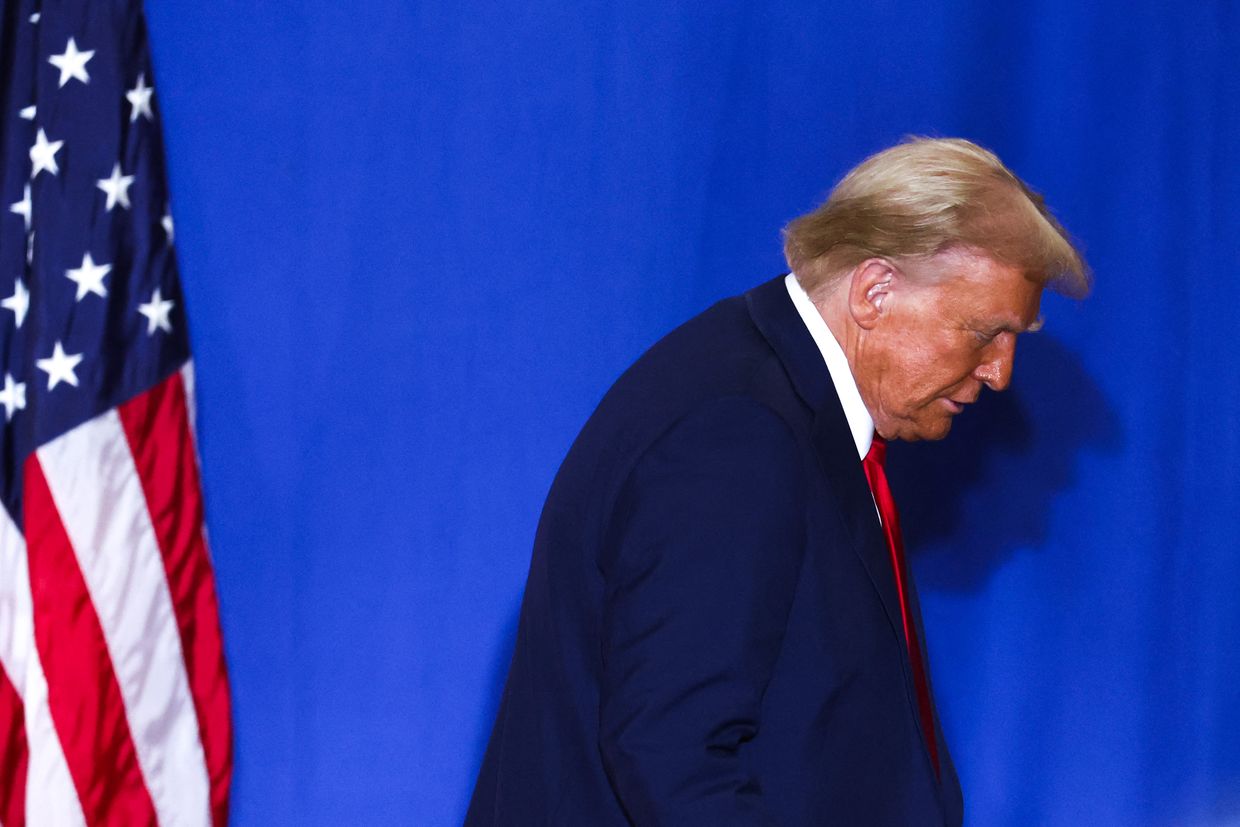
Comments